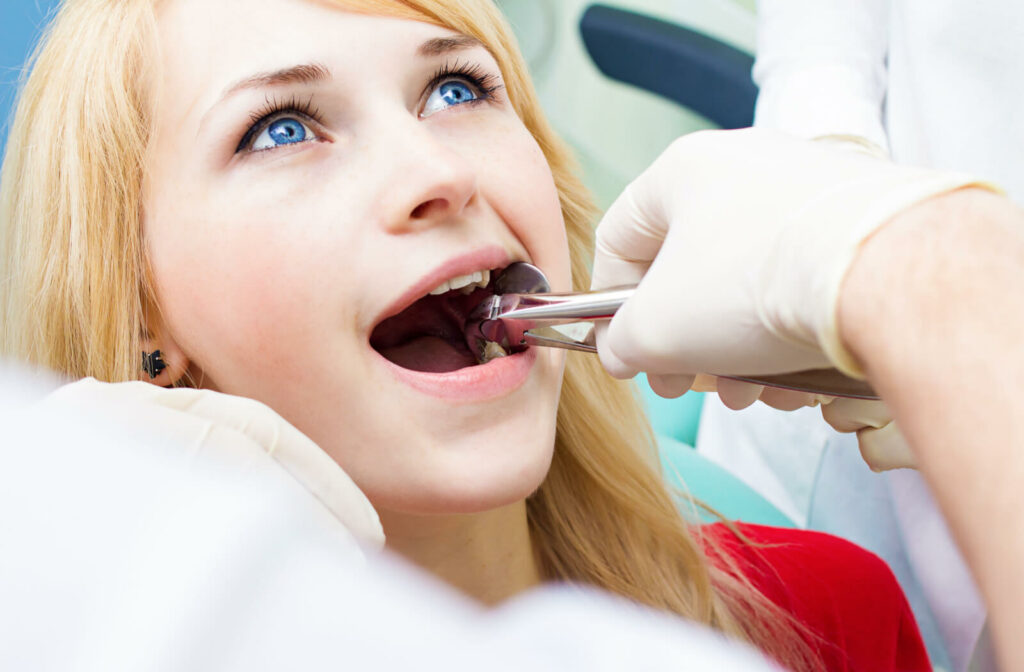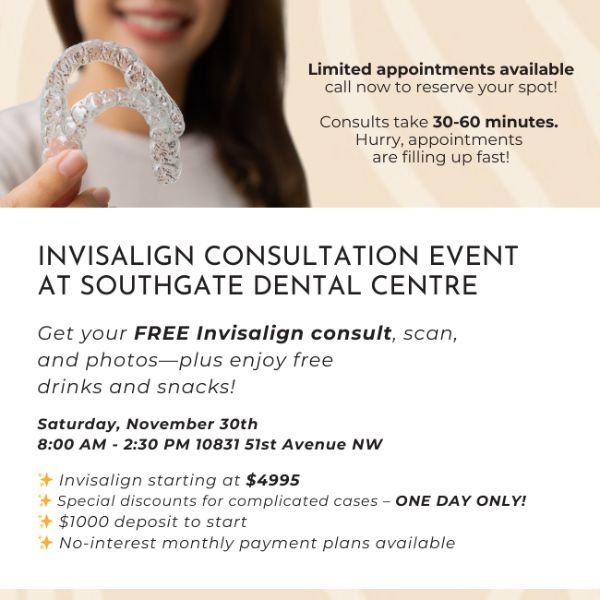If you’re at the age when your wisdom teeth begin to come in, your dentist may notice this during your dental exam and recommend surgery to remove these teeth before they cause issues. Recovering from surgery doesn’t take long, but it can impact your daily life for a few weeks—especially your diet.
Expect a change in your eating habits when recovering from wisdom teeth surgery. Scrambled eggs, broth, smoothies, and other soft foods should make up your diet as you recover from surgery.
Why Do People Need Their Wisdom Teeth Removed?
Your wisdom teeth are the last teeth you develop, molars that sit at the back of your mouth. They typically develop when someone is in their late teens or early 20s. While many patients develop wisdom teeth without issues, others need these molars removed.
Wisdom teeth are typically only removed if they’re going to cause problems, such as pain, teeth shifting, or infections. Your dentist can assess your teeth and determine if you need your wisdom teeth removed.
While each patient is different, you will generally need surgery if:
- Their wisdom teeth are causing pain due to infection or damage to your jaw or teeth.
- Your wisdom teeth are going to cause issues as they develop and try to erupt into your mouth
- Your wisdom teeth are shifting or damaging your adjacent teeth
- If your jaw doesn’t have enough room to hold your wisdom teeth, your wisdom teeth will remain unerupted and a potential hazard as you age
What Issues Can Wisdom Teeth Cause?
A concern with wisdom teeth is the possibility of impaction. When this happens, your molars don’t emerge properly due to space constraints, leading to discomfort, inflammation, possible infection, possible damage to adjacent teeth, and bone problems.
When these molars eventually emerge, they frequently affect teeth alignment due to limited space. Cleaning these teeth at the back of the mouth can also be challenging, increasing the risk of cavities, overcrowding, and infection.
What Can You Expect During Wisdom Teeth Surgery?
Wisdom teeth surgery is relatively straightforward and happens under local or general anesthesia.
The surgical process involves creating a small incision in the gums (if the teeth haven’t emerged yet) and may involve removing some bone to access the wisdom teeth if necessary. Your surgeon removes your wisdom teeth after accessing them, loosening the teeth, and carefully removing them.
Discomfort and swelling are common after wisdom teeth surgery is complete but they typically resolve over the next couple of days. Your surgeon will provide aftercare instructions and pain medication before sending you home to recover.
Wisdom Tooth Removal Aftercare
You can expect several symptoms after wisdom teeth surgery. These symptoms typically improve each day as you heal.
Some possible symptoms include:
- Swelling
- Discomfort
- Minor bleeding
- Sore jaw joint
- Bruising
While you should feel back to normal in around 2 weeks, taking care after surgery is important in helping prevent complications.
A common issue for patients is the development of a dry socket—occurring when the blood clot necessary for healing your wounds becomes dislodged or does form. Follow your surgeon’s instructions carefully to avoid causing a dry socket, the most important one is no smoking.
Additionally, avoid exercising for at least 24 hours after your surgery as that elevates your blood pressure and will promote bleeding and increase swelling. So you can rest, keep yourself comfortable using your prescribed pain medication as directed, ice your jaw 20 minutes and on 20 minutes off to avoid frostbite, and ensure you have the right foods and beverages to avoid unnecessary problems.

What Can You Eat & Drink After Wisdom Teeth Removal?
Having the right foods and drinks is vital as you recover from wisdom teeth removal. A diet of soft, healthy food is ideal as you return to normal.
Some suitable recovery foods and drinks include:
- Blended soup
- Yogurt
- Broth
- Smoothies
- Scrambled eggs
- Mashed banana
- Mashed potatoes
- Applesauce
- Avocado
- Oatmeal
- Cottage cheese
- Salmon
What Should You Avoid?
Unfortunately, you can’t return to some of your favourite foods immediately after surgery. You can gradually add more to your diet as your wounds heal, but chewy, hard, and crunchy food can be difficult and even painful to eat. Ensure you follow your dentist’s aftercare instructions, including the food and drinks you can and can’t have.
Here are some things to avoid as you recover from surgery:
- Smoking: as it slows healing and can cause dry socket.
- Hard, crunchy snacks: Crunchy food like chips, cookies, and other snacks can be difficult to eat and potentially become stuck in the sockets where the teeth were removed, causing potential complications like infection.
- Small, bite-sized snacks: Small snacks like nuts can become stuck in areas that are healing, causing a potential infection.
- Alcohol: Alcoholic drinks can irritate the healing wounds in your mouth and may interact with your pain medication, and can cause dry socket.
- Chewy food: Chewy foods can be challenging to eat as your mouth heals, especially in the initial days and if your jaw joint was stressed during the procedure.
- Spicy food: Spicy food can irritate your wounds.
- Straws: You can potentially disrupt the healing process when sucking on a straw. It may increase the risk of a dry socket.
Your Dentist Is Here to Help
Wisdom teeth surgery is over before you know it, but prepare to stay diligent during recovery. Follow your dentist’s aftercare instructions and avoid foods and drinks that could irritate your wounds. Soft, healthy foods are your friends—and please feel free to ask about any foods you’re unsure of.
Contact us at Southgate Dental Centre if you notice your wisdom teeth coming in.



